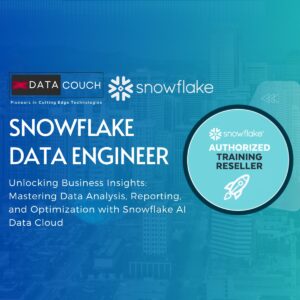
Snowflake Data Engineer
Leveraging Business Intelligence: Advanced Data...
DataCouch Academy | Best-in-class training on Generative AI, Cybersecurity and more

Just enough Generative AI Fundamentals for getting started with GenAI with Azure AI.
Join us for an engaging hands-on workshop where participants will embark on a comprehensive journey into Deep Learning, Azure AI, and the evolution of Natural Language Processing (NLP) into Generative AI. This workshop strikes a balance between theoretical understanding and hands-on practice, serving as a stepping stone for the “Generative AI for Developers” learning path.
No prior knowledge of Generative AI is necessary for attending this event, making it accessible to all. A basic familiarity with Data and Azure Cloud Services concepts is that you need, along with a grasp of tools like Jupyter Lab or Google Colaboratory notebooks. If you’re already acquainted with Python programming, it’s a definite plus.
If you are a developer, software engineer, or even an AI enthusiast who is intrigued by the possibilities of Generative AI, then this workshop is for you. Even if you’re a seasoned AI professional looking to shape intelligent solutions, or a data scientist eager to enhance your skills with OpenAI models, this workshop offers valuable insights.
Join us to explore the forefront of AI and take your skills to the next level. Don’t miss this chance to be part of an exciting journey towards mastering Generative AI and its applications.
Leveraging Business Intelligence: Advanced Data...
Driving Transformation, Efficiency, and Strategy...
Revolutionize your Data Lakehouse efficiency...